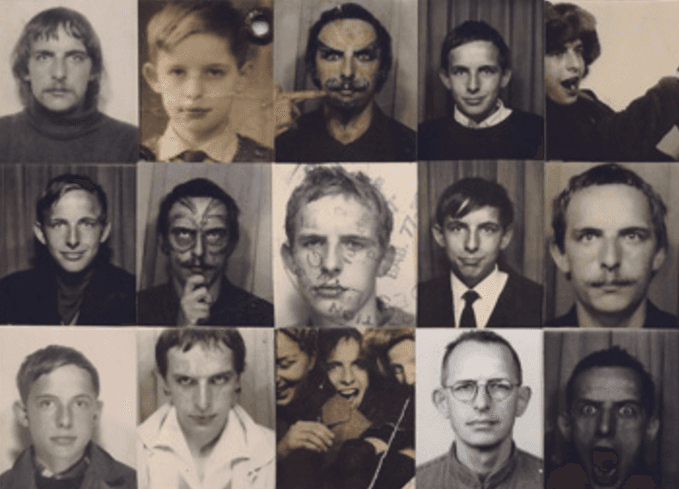After a well-known artist’s tragic death, Taiwan’s LGBT community demands marriage equality
Jacques Camille Picoux's solo exhibition poster in 2012.
The death of a gay French professor who reportedly never fully recovered from the loss of his partner to cancer last year has triggered a call for the Taiwan Legislative Yuan to pass the pending Marriage Equality Act.
Jacques Camille Picoux, born in 1948, moved to Taiwan in 1979. On Oct. 17, 2016, one year after his partner's death, he was found dead outside his apartment building in Taipei. He had died after falling from the top floor of a 10-story building, according to Taipei police. The police ruled out homicide and foul play as they did not find any signs of fighting or a struggle in his apartment nor on the building’s rooftop.
Picoux was a well-known artist in Taiwan. After he retired from teaching French in 2005, he continued making art and held a solo exhibition in 2012. He also played an important role in an award-winning movie called “The Assassin” (2015).
His students and friends believed that he was driven to death out of depression following his partner's death; the fact that their partnership was not recognized legally had left him in agony.
Yen-Jong Lee, a former student of Picoux, posted photos of Jacques and his partner and wrote about their story on Facebook in October 2015, after Jacques’ partner passed away.
Lee wrote, using the letter "J" for Picoux and "C" for his partner, that C's dying wish was to leave their apartment and money to Picoux. "However, they were not married, and their relationship had no legal protection. His simple wish turned out to be extremely difficult in real life. … Even though C and J had lived together for 35 years, J could not do anything about it because they were not married legally," she wrote in Chinese. "Just because J and C were not married, they were unrelated strangers, legally speaking." The day that C died, "J stayed at home. He refused to eat and kept drinking vodka. Slept, woke up and cried."
Picoux's death has prompted Taiwanese to push for the passage of the Marriage Equality Act, which has been pending in the Legislative Yuan.
The bill was presented to lawmakers in 2012 and had its first reading in 2013. However, after a massive mobilization against same-sex marriage in 2014, the bill was suspended. While current Taiwan President Tsai Ing-Wen is a strong supporter of LGBT rights, the LGBT community is disappointed that the Tsai administration has stalled the legislation.
Taiwan is considered one of the most liberal countries in Asia because of its LGBT-friendly environment. Yet Picoux's death speaks volumes about how being “friendly” is not enough.
Upon hearing the news of Picoux’s death, Hsin-Yi Chu, who is gay herself, criticized the lip service paid to LGBT rights and urged for more concrete act of support. "Professor Picoux passed away today. Why couldn’t a partner of someone for 35 years live as someone’s legal spouse and face sickness and death together like a legal spouse?" she wrote. "This world is hypocritical! For those who say that Taiwan is very friendly to LGBT groups, those words are just lip service."
The LGBT community prepared to make a final push to speed up the legislation at an annual pride parade in Taiwan on Oct. 29. The theme of this year's parade was “Shatter the mask of hypocritical kindness;“ they are combatting common views such as "I do not object gays or lesbians, as long as my kids are not one of them," or "I think those transgender people are very brave, but we should not let kids know about them since kids know nothing."
Some believe that the passage of marriage equality legislation in Taiwan is just a matter of time. The bill that will allow for same-sex marriage has been pending for more than three years now, but it was revised and submitted by a group of legislators again on Oct. 25.
For the original Chinese language quotes in this story, read this story at Global Voices.
Our coverage reaches millions each week, but only a small fraction of listeners contribute to sustain our program. We still need 224 more people to donate $100 or $10/monthly to unlock our $67,000 match. Will you help us get there today?
